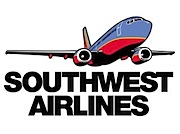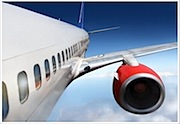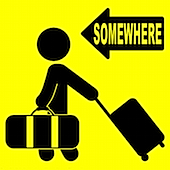
Earlier this week I talked about how I had been rather inundated with emails from Southwest Airlines’ pilots (and other employees) concerning the airline’s announced codeshare agreement with Mexican carrier Volaris.
Since that time, the email bag has continued to fill up.
Now, not only am I hearing from pissed off Southwest pilots, I’m hearing from other Southwest pilots who tell me, “Well, if you have the highest paid pilot group in the country, what do you expect Gary Kelly to do?” One Southwest pilot wrote me, “You can’t have it both ways. We are blessed with the contract that we have and have had. But reality is what it is. And if the airline can fly shorter-haul routes more cheaply using pilots from other airlines — guess what the airline is going to do.”
So both sides of the argument are making their voices heard.
But even one Southwest Airlines‘ pilot who talked about how the pilots should not be surprised, given their current compensation level also acknowledged that “Gary blew it.” A lot of the comments coming into me this week have talked about how after negotiating an agreement as part of the continuing negotiations between the airline and the pilots on a new contract that would allow codesharing — that Gary apparently then went back to the union again wanting to renegotiate the deal — and this is where things have now begun to unravel. Meanwhile, the airline stepped up and announced the codeshare with WestJet this summer.
And then there are pilots from other airlines. The notes from you folks tend to go something along these lines, “It’s about time the guys at Southwest joined the rest of us. Welcome to the club.”
As for the pilot union at Southwest, SWAPA president Carl Kuwitsky said in a letter issued Wednesday,
“While this announcement is yet another step in previously announced plans by the Company to form multiple codeshare alliances, it leaves a very unsettled feeling with many in our pilot group including your SWAPA leadership. In fact, it is very problematic for me personally and as a leader of our pilot group. Codeshare has the potential to severely affect the career of all pilots on our seniority list. At a time when our Company has stated publically that we are not planning to grow in 2009, we have embraced yet another codeshare partner who will benefit significantly from the codeshare partnership by experiencing double digit growth while our pilot group experiences negative growth with the capacity reduction in January. I cannot support these efforts and the cost to our pilots. Our Company needs to be committed to growing Southwest Airlines, not codeshare partners.
Volaris is mostly an unknown to our pilot group and your leadership. It is a two year old carrier with 19 Airbus 319/320 aircraft. They serve 23 cities in Mexico focusing on smaller satellite airports. One very troubling aspect to this announcement is that our Company is risking brand dilution by association with an unknown carrier. Our Company’s experience with ATA via a codeshare agreement resulted in numerous customer service and operational problems that reflected poorly on Southwest Airlines which adversely affected our brand. Additionally, when ATA went out of business, thousands of customers were holding itineraries sold by Southwest that could not be completed. Clearly the association with ATA reflected poorly on our Company. While Volaris may turn out fine, it does nothing to satisfy membership angst over potential brand dilution due to poor customer service or operational issues, especially when we could do some transborder flying and completely control our brand image. As employees all of us have worked very hard to build what we know as Southwest Airlines. We take great pride in our Company and what we have built. Our Company has a great responsibility to maintain that positive brand image. I must say that I am dismayed that the Company would risk its image by associating with such a young, unknown carrier.”
This contract should have been wrapped up way before now. But it has now dragged on so long that the airline is looking at simultaneously trying to negotiate three major employee contracts at the same time. While the airline is now watching previously agreed upon sections of the pilot contract apparently go poof!, the TWU, which has been negotiating a new contract for ground workers at the airline, just asked, along with the airline, for the National Meditation Board to help in those stalled talks.
Then there are the flight attendants. Negotiations continue between TWU 556 and the company on a new contract there. Not much progress has been made as far as we can tell. According to the union’s website, “…it is clear that we are still far apart on our Economic Proposals….”






